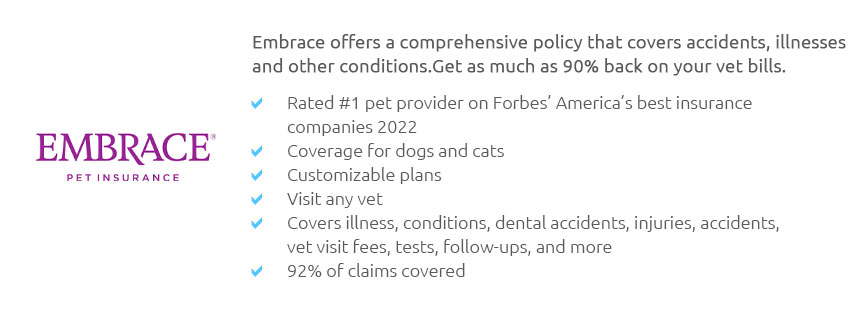 |
 |
 |
 |
 |
 |
|
 |
|
 |
|
 |
|
 |
|
 |
 |
 |
 |
 |
 |
 |
 |
Understanding Pet Companion Insurance: A Practical GuideIn an era where our pets are increasingly viewed as integral members of the family, the concept of pet companion insurance has emerged as a topic of significant importance. This type of insurance, once considered a luxury, is now gaining traction as a practical necessity among pet owners who wish to safeguard their beloved animals against unforeseen circumstances. The growing awareness of veterinary healthcare costs is prompting more individuals to consider the benefits of insuring their furry, feathered, or scaled companions. Pet companion insurance, at its core, is designed to mitigate the financial burden of unexpected veterinary expenses. Just as humans have health insurance to cover medical treatments, pets can benefit from similar protection. Coverage typically includes accidents, illnesses, and in some cases, preventive care, offering a comprehensive safety net that can provide peace of mind to pet owners. The ability to choose from a variety of plans allows individuals to tailor insurance coverage according to their pet's specific needs and their personal budget constraints. One might wonder why pet insurance is necessary when, traditionally, many pet owners have simply paid out-of-pocket for veterinary services. The answer lies in the escalating costs of veterinary care, driven by advancements in medical technology and treatments available for animals today. Procedures that were once deemed impossible are now routinely performed, albeit at a cost. Without insurance, these expenses can quickly add up, leading to financial strain or, in the worst-case scenario, the heartbreaking decision to forgo treatment altogether.
While the benefits of pet companion insurance are clear, potential policyholders should also be aware of some challenges associated with it. For instance, pre-existing conditions are typically excluded from coverage, which underscores the importance of insuring pets at a young age. Additionally, there can be limitations on coverage amounts, annual or lifetime caps, and waiting periods before coverage kicks in. Understanding these nuances is crucial when selecting the right insurance plan. In terms of subtle opinion, one might argue that investing in pet insurance is not only a financial decision but a compassionate one. It reflects a commitment to ensuring that pets receive the best possible care, regardless of circumstances. The peace of mind that comes with knowing that you can provide for your pet's health needs without financial stress is, arguably, priceless. As with any insurance, it's wise to shop around, compare different providers, and read the fine print carefully. Engaging in conversations with veterinarians and other pet owners can also yield valuable insights. Ultimately, the decision to purchase pet companion insurance should align with one's personal values, financial situation, and the specific needs of their pet. In a world where the human-animal bond is cherished more than ever, having a plan to protect that relationship is both a wise and loving choice. https://www.petinsurancequotes.com/compare/companion-protect-pet-insurance/
Coverage. Companion protect offer one, simple accident and illness policy that covers unexpected injuries and illnesses. The plan includes a $100 deductible and ... https://www.reddit.com/r/CatAdvice/comments/1e571wg/need_pet_insurance_advice_because_my_current/
I got my cat, Kora, 2 years ago (she is now 6) and was offered pet insurance by the shelter through Companion Protect. https://www.pawlicy.com/blog/companion-protect-pet-insurance/
Companion Protect Pet Insurance offers one comprehensive but straightforward plan with Accident & Illness coverage. The policy includes a 90% reimbursement rate ...
|